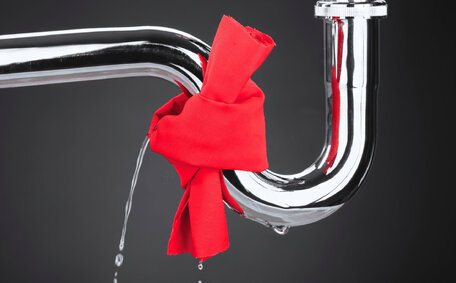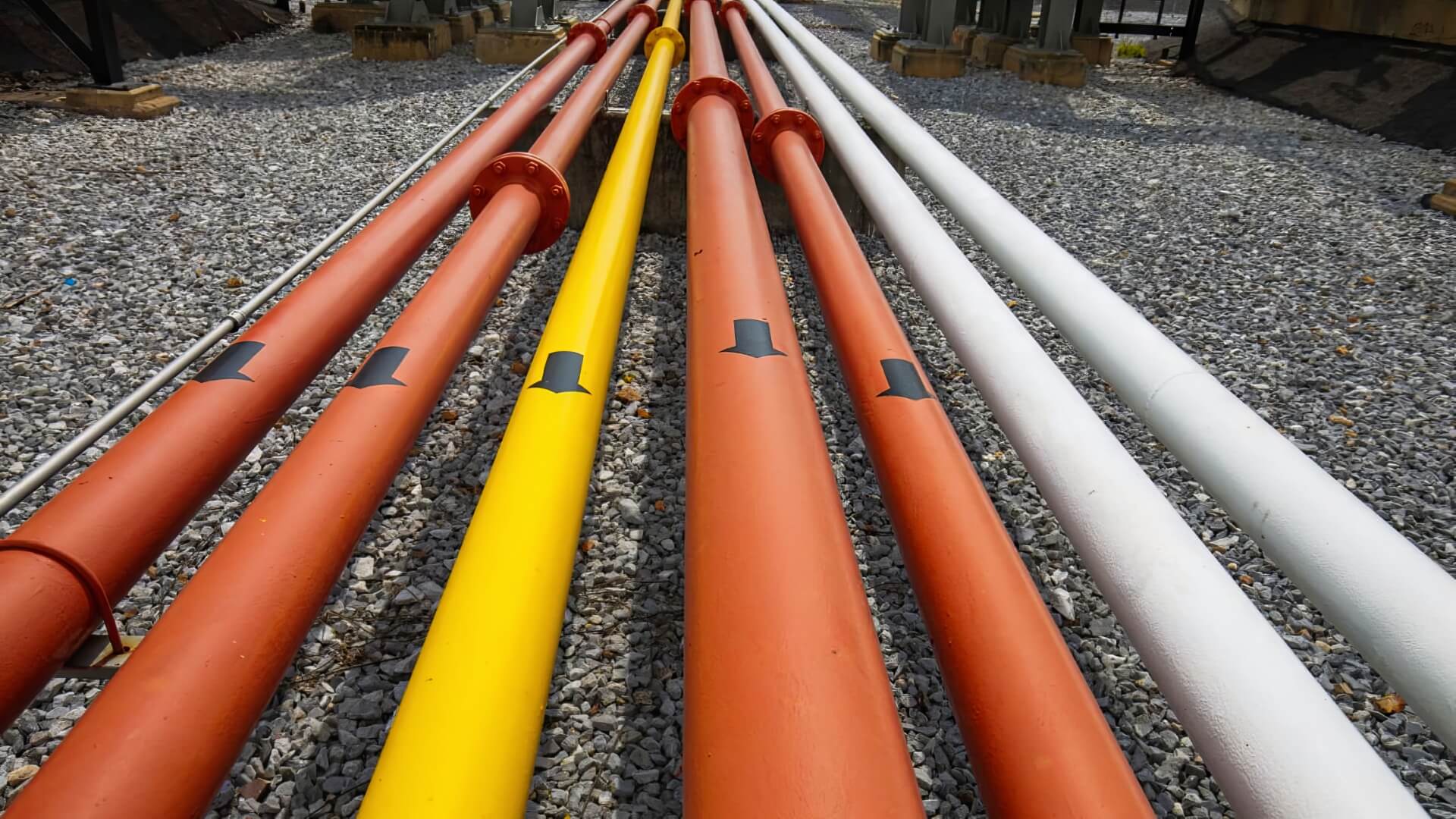Understanding the Dangers and Risks of Gas Leaks
A natural gas leak can quickly escalate into a gas explosion, presenting serious risks from building pipes, valves, or fittings.
Natural gas and LPG, being highly flammable, pose risks of fire or explosion, even from minor leaks.
The dangers intensify with the speed at which natural gas can disperse into the air, posing a catastrophic threat if ignited by any spark.
Stay critically alert to carbon monoxide emissions from a suspected gas leak, which pose poisoning and explosion risks, notably in confined areas. Gas leaks contribute to approximately 17,000 fires and explosions every year in the United States.
Detecting and promptly addressing a gas leak through regular monitoring and checks is crucial for explosion prevention. Home and business owners should know the gas safety procedures for managing leaks, including identifying signs of gas exposure, implementing safety measures, and coordinating emergency responses.
Prevention is equally important, and when gas appliances, pipes, and fittings are properly installed and maintained, the risks that leaks can pose diminish significantly.
What Causes Gas Leaks in Homes and Businesses?
Common causes of gas leaks in residential and commercial properties include:
- Old gas pipes and appliances may develop leaks, letting natural gas seep into your property through cracks or loose fittings over time
- Poor maintenance, like neglecting regular gas equipment inspections
- Incorrect or faulty installation of gas lines, valves or appliances
- Physical damage to underground gas lines or meters from construction, tree roots, storms, etc.
Experts conducting annual inspections are vital to ensuring natural gas safety and pinpointing potential leak sources on your property. Any plumbing or gas line work, particularly repairs after an event where natural gas can cause unforeseen issues, should only be executed by qualified technicians as per local regulations.
Contact emergency services immediately to identify the source of the leak when you suspect a gas hazard at your property.
Warning Signs and Symptoms of a Gas Leak
There are several key warning signs indicating the potential presence of a dangerous gas leak home environment or business premises:
- Rotten Egg Smell: Natural gas has an additive that gives it a distinct "rotten egg" or sulphur-like odour to aid in detection. If you suddenly smell gas that might indicate a leak gas or pipe issue, it is imperative to assume gas may be present.
- Hissing, Whistling or Roaring Noises: Escaping pressurised gas tends to make loud hissing, whistling or roaring sounds which can alert you to leaks around gas appliances, pipes or tanks before the smell becomes apparent.
- Bubbles in Water: An indication of underground gas leaks from a water leak is the appearance of bubbles rising in puddles, wet soil or near drains, as the escaping gas displaces water.
- Dead Vegetation: Certain soil conditions can cause gas disruptions, affecting nutrient supplies and killing off vegetation in otherwise verdant patches of a lawn or garden.
- Dizziness, Fatigue or Nausea: Inhaling fumes when there’s a gas leak present, especially in confined spaces with poor ventilation, can initially lead to symptoms like dizziness, tiredness and nausea as signs of exposure and suffocation.
Observation and swift reaction to any hint of a house gas leak is critical to prevent immediate and prolonged health risks and to reduce the threat of a fire.
Steps to Take if You Suspect a Gas Leak
If you detect the telltale gas smell indicating a leak and suspect a gas leak at home, it is crucial to take the following steps immediately:
- Vacate the area at once and avoid using any electrical switches or devices near the leak for safety.
- Extinguish all open flames and refrain from using matches or lighters, taking into account all potential gas sources in the vicinity. Any inadvertent spark can ignite gas quickly, and a leak can cause a severe fire.
- Open doors and windows to enhance ventilation, allowing fumes from a gas leak to dissipate swiftly.
- If it’s safe, shut off the main gas valve to stop gas flow if a leak is suspected in your residence. Familiarise yourself with this location beforehand.
- Immediately call 000 to contact emergency services without delay. Also, reach out to your gas utility provider to report the leak.
- Do not attempt to evaluate the situation or undertake gas leak repairs on your own. Wait for authorised personnel from emergency services or your gas company to arrive on site and address the situation professionally.
- Schedule a safety inspection and check your gas system after gas leak events by licenced specialists like Wetherill Park Plumbing to identify and comprehensively rectify underlaying issues before restoring your gas supply.
Should a gas leak be present, evacuate without delay to mitigate the risk of a sudden explosion, and wait for professionals to ensure safety before re-entering.
Gas Leak Prevention Through Maintenance
Securing your residence or business against natural gas leaks starts with consistent inspections and maintenance of your gas system. Staying vigilant and proactive helps minimise the risk of gas incidents, ensuring property safety.
Routine Inspections
Annual inspections by certified professionals can identify potential hazards, preventing gas leaks from escalating into serious issues. These experts can assess the condition of your gas pipelines, valves, and appliances, ensuring that everything is functioning optimally and that gas leaks are addressed appropriately up to code.
Maintaining Gas Appliances
Routine service of gas appliances like stoves and heaters reduces the risk of gas leaks and improves their efficiency and longevity.
Installing Gas Detectors
Gas detectors provide more than just an alarm; they are an invaluable tool in the early detection of a gas leak that can occur in your home.
These devices can alert you when there’s a leak your home or business faces before it becomes a serious threat. Installing domestic gas detectors near appliances or in low-lying areas where gas may accumulate can provide an added layer of safety.
Professional Oversight
DIY repairs on gas systems are strongly discouraged; always engage a licensed professional.
Always consult a licenced plumber or gas fitter when there is gas work or repair needed to ensure that the job is done correctly and to code.
Prioritising preventive measures like inspections, appliance maintenance, and gas detector installation enhances safety and reduces the risk of leaks. Remember, when it comes to gas safety, vigilance and professional oversight are key.
When to Call a Professional Plumber
There are several situations that warrant contacting a licenced, professional plumber such as Wetherill Park Plumbing on 1300 349 338 or jobs@wetherillparkplumbingservices.com.au:
- If you suspect what to do gas leak - Do not try to locate or repair leaks yourself. Evacuate immediately and call emergency services and a professional plumber.
- For new gas appliances installation - Certified gas fitters ensure correct fitting and compliance with safety regulations.
- For routine gas safety checks - Annual inspections help identify issues before they become dangerous.
- If an existing gas appliance needs repair or maintenance that involves the gas components.
- When renovating a home or building and gas line work is required.
Wetherill Park Plumbing, as licensed plumbers and gas fitters, possess the required expertise to:
- Inspect entire gas systems and appliances for leaks or faults.
- Repair or replace ageing and damaged gas pipes.
- Install and certify new gas appliances to standards.
- Provide comprehensive gas leak detection services.
- Ensure ongoing compliance with safety regulations.
Hiring a professional plumber ensures thorough rectification of gas system leaks and prevents hazardous situations.






